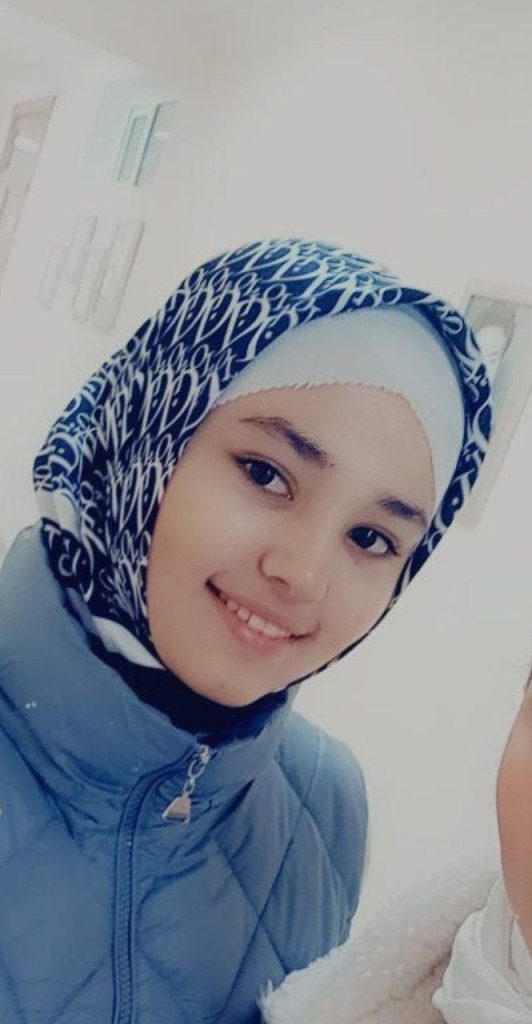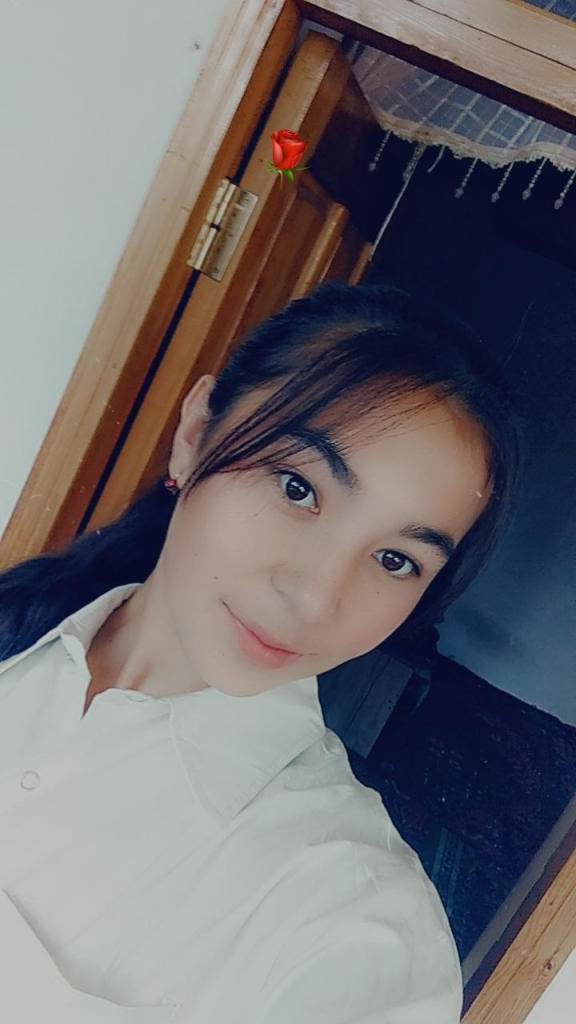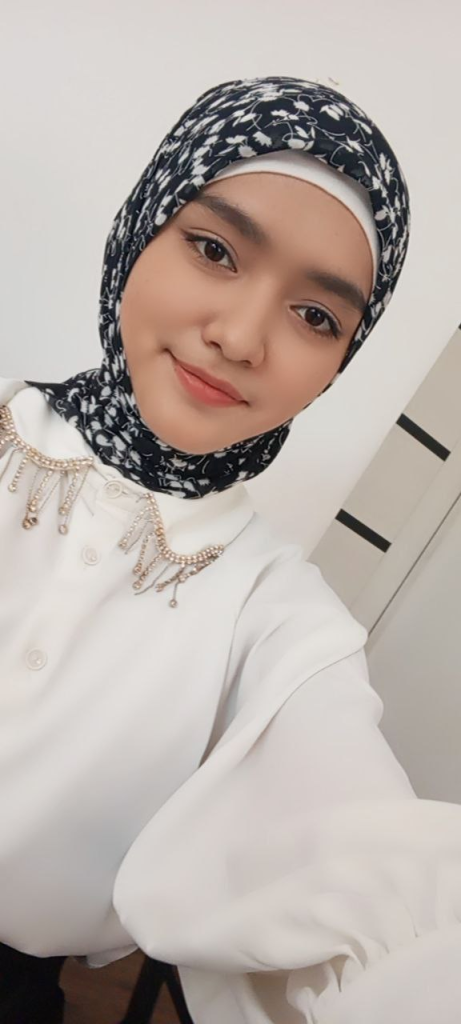Five One-Line Haiku sky grows darker sunset or storm clouds? — nephew’s 13th birthday whitecaps on the lake — red rocks pink at sunrise I wake up to check my phone — Memorial Day three unsharpened yellow pencils by the dumpster — a crow calls before six you’re early this morning — J. D. Nelson is the author of eleven print chapbooks and e-books of poetry, including *purgatorio* (wlovolw, 2024). His first full-length collection is *in ghostly onehead* (Post-Asemic Press, 2022). Visit his website, MadVerse.com, for more information and links to his published work. Nelson lives in Boulder, Colorado, USA.
Category Archives: CHAOS
Essay from Rustamjonova Nodira
THERE ARE MANY STARS IN THE SKY BUT THE MOON IS THE ONLY ONE

Introduction
Uzbekistan has stepped on the threshold of progress. We have gotten rid of the unpleasant word of slavery for many years, we have gradually achieved and are achieving our rights, traditions, holidays, religion, laws, and countless wealth.
In fact, at the beginning of the 20th century, the leaders of science, i.e., the Jadids, dreamed of today’s independent country and, accordingly, used a number of unsuccessful measures several times. Fortunately, they did not stop sacrificing their lives for the freedom of the people.
During the colonial period, our great nation was under both material and spiritual shocks, i.e., it was in such darkness that the nation did not even want to believe that there was a light.
The former Soviet Union occupied many countries along with our country. But at an unexpected moment, that is, in the 80s of the 20th century, the state of the USSR began to weaken due to the inexperience of the government leaders. This is an opportunity for a number of former Soviet Union countries to gain independence.
The post of President was introduced in Uzbekistan as the first among the colonial states of the USSR. On June 20, 1990, the Declaration on the sovereignty of Uzbekistan was adopted, and on August 31, 1991, the 1st President of the Republic of Uzbekistan declared Independence Day. they say:
“From today, I propose to declare September 1 as a national holiday in our republic, the day of progress,” they cheered up all the people.
On December 29, 1991, Islam Abduganievich Karimov was elected the first president of the Republic of Uzbekistan.
In fact, they turned their chests to the responsible work of managing it as a country and put heavy burdens on their shoulders. prosperity took the father of the country away from these pains.
Of course, it should be said that the word “difficulty” is not a foreign word for a nation that is being built. Because, in people’s minds, an evil country called the USSR, in its time, the food, clothes, and prices in the markets are as if a person who says he is poor can wait for a guest for at least 3 days in his house. left a good impression. But they tried to uproot us from our values, our thousand-year-old indelible history. Although the Uzbek people, a great nation, were decorated with the image of slavery for many years, they could not even move the foundation of our golden values. The honorable blood of our ancestors flows in our blood, regardless of the fact that the nation has become very old and has forgotten its identity.
Dear President had the following words in this regard:
“The blood of the Uzbek nation is hot, if someone from abroad seems to speak wrongly to us, it is difficult to bring us back to our mold. Europeans living in a cold nation do not understand this. who emphasized that.
In the first years of independence, difficult days began in the life of our people. Many people have money to feed, but there is very little product, there are factories, but there are few personnel who know it, there is a lack of knowledge and skills to process the grain. There was a big turn and unprecedented changes in the life of our people. But due to many years of difficulties, we got back on our feet and became stronger. We took our country from the hands of fascism, we realized our identity, that all the blessings in the heavenly land belong only to us and not to give double help to anyone. we understood that it is necessary. In order to develop industry, economy, defense, construction, agro-technological and many other modern fields in our country, training of qualified personnel has been launched.
Our honorable President also emphasizes that “we have put the people and their interests at the center of all changes and updates in order to achieve such results in the reforms we are implementing.” If we look at the above words, achieving independence, realizing our identity, learning our history is all for ourselves, for the nation, for the youth, for our future.
Today, the main priority of us young people is that we have a responsible duty and mission to move forward on this great path, to study the heritage of our ancestors and become a generation worthy of it, to be the leaders of the time in all fields. The words of the father of Islam, “we are not less than anyone and will not be less” always ring in my ears. No one will ever forget the selfless services rendered by this person to the Uzbek nation, the white hair in his hair, the packaging in his hands, the sleepless nights he spent thinking about the peace of our country, his eyes that have lost hope and light, and his priceless life that he exchanged for the happiness of others. needed.
Islam Abduganievich Karimov ruled the Republic of Uzbekistan for 25 years. He died of stroke on September 2, 2016.
About the author

Rustamjonova Nodira Tahirjan kizi was born on December 4, 2005 in Toraqorgan district, Namangan region. Currently she is 2nd year student of Biology department, Namangan State Pedagogical Institute. She is so intelligent and determined student. In 2024, she participated in the conference “Actual problems of biology: integration of science, education and production” with an article on the topic “History of medicinal plants. Their importance in human and animal life”.
Poetry from Martha Ellen
Benzo Brain #1 *
“It’s a chemical imbalance
in the brain.” Ad copy from
Don Draper. I bought it. An
almost mouse scampers
across the floor. A Native
woman with saucer eyes.
She’s nice. Someone in the
kitchen plays You Suffer by
Napalm Death. A firefly smiles.
Who knew? Adorable. Doc
says up dose for two weeks.
Stars in the living room. Kurt
Cobain hovers. “Hi. Miss you.”
“Mommy I can still crawl!”
Big Pharma cashes in.
2024
Short story from David Sapp
Mailbox
On occasion this distant memory surfaces at curious moments. I’m unsure why. However random and peculiar, I suppose the event, over fifty years ago, had some significance for my young mind. One night when I was six or seven, in my pajamas after my bath but before bedtime, close to Hop on Pop and Green Eggs and Ham, we are all in the kitchen, Mom, Dad, me. I’m eating either cereal with six teaspoons of sugar or Nestle’s Quik chocolate milk and Oreos with even more sugar. There may or may not be a brushing of teeth soon. There’s a knock at our door and there’s the neighbor kid, the Klines’ oldest teenager sheepishly apologetic, informing Dad that he just hit our mailbox with his father’s car at the end of our long, washed-out lane. I worry about getting a letter tomorrow from Patty, my girlfriend. He is opening his wallet offering to pay Dad for the damage – the few dollars he has now and the rest on payday.
Dad said later that he could have kept on going and no one would be the wiser, except maybe the father if he looked closely at the fender or grill. But he stopped and did the right thing. This made an impression upon Dad and apparently it made an impression upon me as at that age anything that would impress Dad was certain to impress me. Here was the outset of an honorable young man. Dad told him not to worry about it – to put his wallet away. The next day Dad and I went to the hardware store, bought a new box, and affixed our numbers to it. Dad showed me how to dig a post hole, setting a flat stone in the bottom so the wood would not rot, righting the post with the level, then tamping the dirt down around the base to firm it up. I used this knowledge a few times for my own mailboxes at the end of my own driveways. When I began driving, I was lucky not to destroy any mailboxes, although I do recall scraping against a city limits sign on the way to school – but there was no one handy to confess to. And fortunately, so far, none of my mailboxes have been demolished by a neighbor.
Poetry from Mykyta Ryzhykh
the birds told me about silence forest temple spring *** The cut off silence of snow You swam out of the kefir night into the dawn I dug a hole for you and I made a coffin for you I ghosting and brought the lonely future closer Cracks in the air crunched loudly Someone is sneaking someone is looking for you in the silence Blizzard blossoms like apple tree above And from below under the ground worms are crawling into the future Triangular night is knocking on the back of head And in the back of the head there is nothing except wormy posthumous tin *** we prayed to everyone: from Jesus and Satan to Batman and the Joker as a result: your face is now forever young the photo on the cemetery granite slab never changes *** grass under your feet glass under your feet crunch underfoot crunch inside Rainer Kunze's rain gardens fall on the heads of silent stones that we were before we were born *** a person is born with a noose around his neck a rope that is attached to god who will wash us in the rain without a home who will wash our feet like in ancient times one cheek for a hit, one cheek for suicide and somewhere between the cheeks there are eyes that slid down from what they saw *** torn belly herbarium autumn leaves stick to the eyes future in the rain moisture attracts worms birds drink the silence in an abandoned cemetery
Essay from Mo’minjonova Diyora
Books are our friends

In our life we can meet different educated people, who read different books to achieve these successes. It is these books that made the uneducated and educated people become scientists. There are many types of books. There are also books for people with different skills. There are many books of world literature.
Among us there are folk proverbs like: ‘a book is our friend’ and ‘a book is a source of knowledge’. Always full of valuable and useful information for us. I mostly like to read world literature. I am especially interested in the works of Shakespeare and Pushkin. I recommend it to you too. A person who reads books is never lacking. Besides, he craves knowledge in his adult life. We can use the wide opportunities given to young people to visit various libraries and read to our heart’s content. It is this books that make scientists, and we should read various magazine and articles without limiting ourselves to books.
Mo’minjonova Diyora was born in 2007, 4th September in Turakurgan. She is a student of 11th grade.
Essay from Ibrohimova Durdonaxon

Key Aspects of Children’s Education: A Brief Overview
Children’s education is essential for personal development and societal progress. This article highlights the most important aspects of children’s education, including early childhood development, the role of play, parental involvement, social and emotional learning, inclusive education, and technology integration.
1. Early Childhood Development
Early childhood is crucial for cognitive, social, and emotional growth. High-quality early education programs promote language, problem-solving, and creative skills while also fostering emotional and social development. These programs provide a strong foundation for lifelong learning and academic success.
2. The Role of Play in Learning
Play is vital for children’s cognitive, social, and emotional development. It helps children explore, solve problems, and develop social skills. Different types of play, such as imaginative, structured, and physical play, contribute to creativity, strategic thinking, and physical health. Incorporating play into education enhances engagement and holistic growth.
3. Parental Involvement
Active parental involvement is linked to better academic performance, higher self-esteem, and improved behavior in children. Effective involvement includes supporting learning goals, fostering a love for reading, and establishing strong partnerships with educators. Quality of involvement is more impactful than quantity.
4. Social and Emotional Learning (SEL)
SEL focuses on developing skills like empathy, self-awareness, and emotional regulation. Integrating SEL into the curriculum promotes better academic outcomes, reduces bullying, and builds resilience. It equips children with essential life skills to manage emotions and relationships.
5. Inclusive and Equitable Education
Inclusive education ensures that all children, regardless of background or ability, have equal opportunities to learn. It involves adapting teaching methods and providing support to meet diverse needs. Equitable education addresses disparities related to socioeconomic status, race, and other factors, creating a fair and supportive learning environment.
6. Technology Integration
Technology enhances learning by offering interactive and personalized content. Effective use of digital tools can foster creativity and collaboration but must be thoughtfully integrated to support traditional learning methods and ensure equitable access for all students.
Conclusion
Focusing on these key aspects helps create an educational environment that nurtures each child’s potential, preparing them for a successful and fulfilling life.
Ibrohimova Durdonaxon was born on April 6, 2005. She studies at Kokand State Pedagogical Institute and lives in the Pandigon neighborhood of Quva District, Fergana Region.
